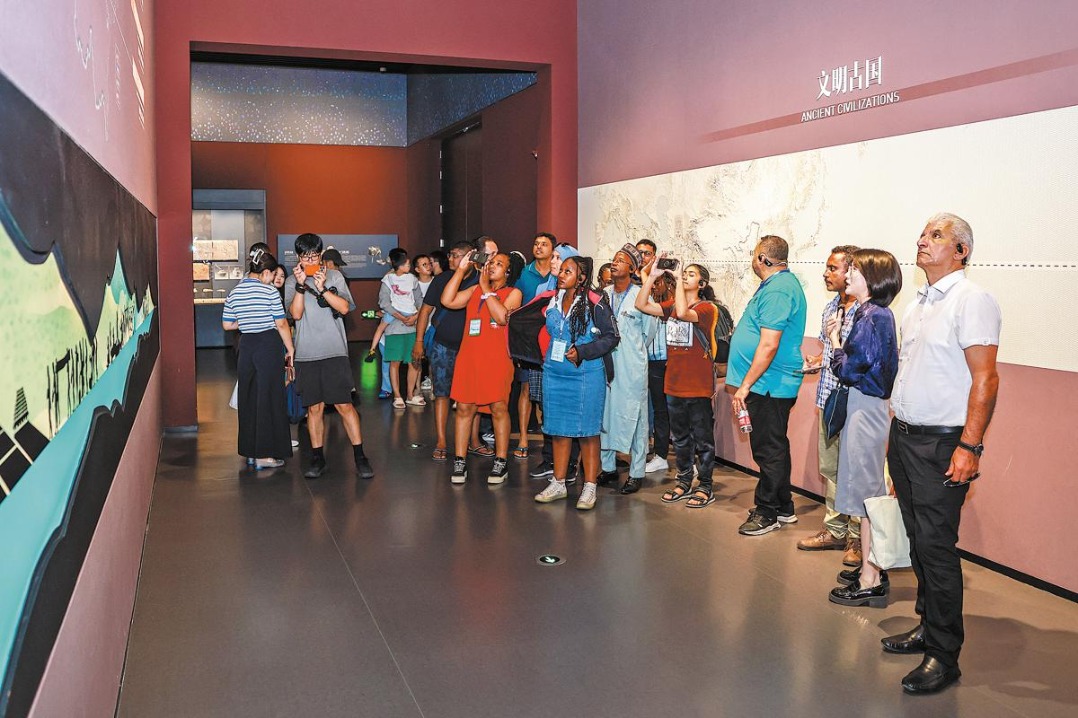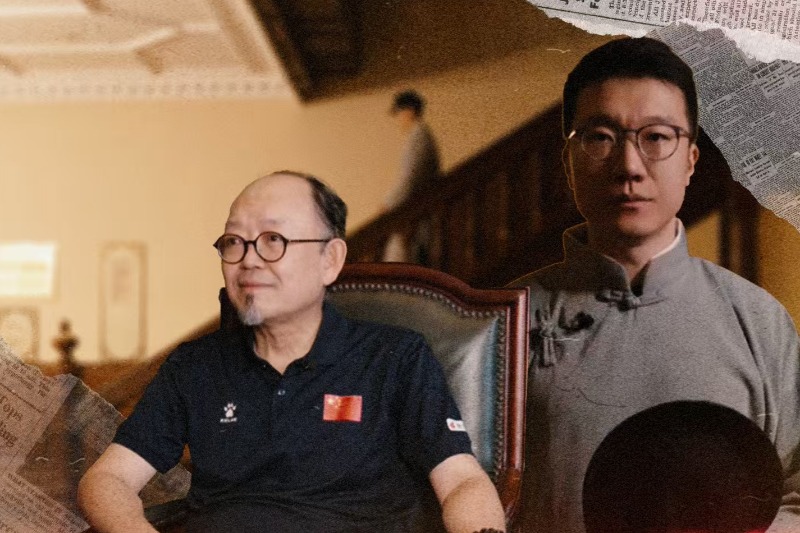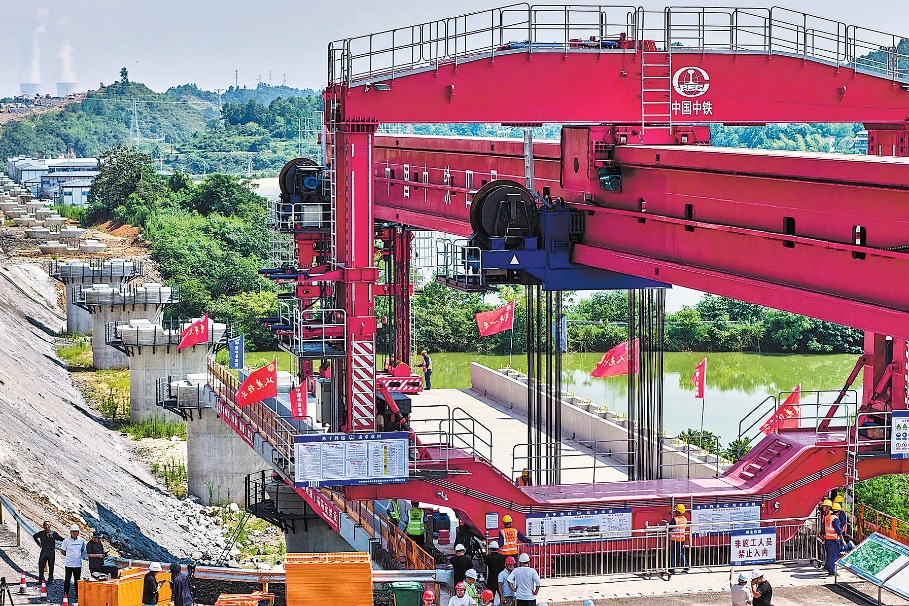Terraced rice fields are tourism resource

NANNING — The paddy fields located on a mountain in the Guangxi Zhuang autonomous region once only produced rice for locals, but today, they are a unique tourism resource. It is said that the Longji Rice Terraces were first discovered by backpackers in the 20th century when they saw the staggered rice paddies coiled in the karst mountains at an altitude of several kilometers and proclaimed them to be a breathtaking sight.
The rice fields have evolved into a world-class tourist attraction thanks to the locals' continuous efforts over the past decade.
The terraced fields already existed during the Qin Dynasty (221-206 BC), says Pan Baoyu, former Party secretary of Dazhai village in the Longsheng multinational autonomous county, who first protected and developed the fields.
From the 1980s, many young people chose to leave the village for work due to low farming incomes and the large terraced fields were abandoned, Pan says.
"At that time, we thought that the rice farming methods handed down from our ancestors should not be abandoned and we could rely on the unique terraced landscape to develop tourism so that the village could be revitalized," Pan recalls.
Around 2008, Dazhai organized volunteer farming teams with village officials taking the lead in helping poor families and unemployed locals cultivate the fields. It also cooperated with a company for tourism development. In 2019, 1.5 million visits were made to the Longji Rice Terraces from China and abroad. In 2022, Dazhai was named among the Best Tourism Villages of the year by the World Tourism Organization for its breathtaking agricultural views.
In early 2024, Dazhai held its annual tourism dividend conference where 282 households won a total of 7.25 million yuan ($1.02 million) in year-end bonuses, each receiving an average of over 25,000 yuan.
China is the birthplace of rice culture. The earliest artificially cultivated rice was grown 10,000 years ago and discovered at the Yuchanyan site in Daoxian county, Hunan province, located more than 200 kilometers from Longsheng. Today, China is the world's largest rice producer, with 60 percent of its population eating rice as a staple.
Experts say that rice culture, which originated in southern China, is one of the core elements of Chinese civilization, not only supporting economic and social development but also influencing philosophy, art and other areas.
Thanks to a targeted poverty alleviation strategy implemented in 2013, which included tourism development, Dazhai was lifted out of poverty in 2015 and the Longsheng county bid farewell to poverty in 2019.
The super-hybrid rice cultivated by scientist Yuan Longping, the "father of hybrid rice", not only helped to solve the food shortages of the Chinese people but also made great contributions to solving the same problems facing humankind. Yuan visited Longsheng and conducted experiments in the fields.
Dazhai no longer plants traditional high-stalk rice, but late-maturing high-quality hybrid rice that has a full growth period of 150 days and produces higher yields. Its harvest time can be delayed until late October, giving visitors more time to enjoy the beauty of the terraces.
"We use drones to monitor rice growth and all the villagers know that we should protect the terraced fields," says Pan Dexiong, a villager who quit his job in the southern metropolis of Shenzhen, Guangdong province, in 2012 and returned to Dazhai.
He later opened a bed-and-breakfast business, whose occupancy rate can be "80 percent in the peak season", and a restaurant with an annual income up to 500,000 yuan.
Many young people like him have returned home to farm their own land and find a new way to profit.
Dazhai village has also become the "sister village" of one in Laos, helping locals there plant rice and sharing methods to gain wealth through tourism development.
Xinhua































